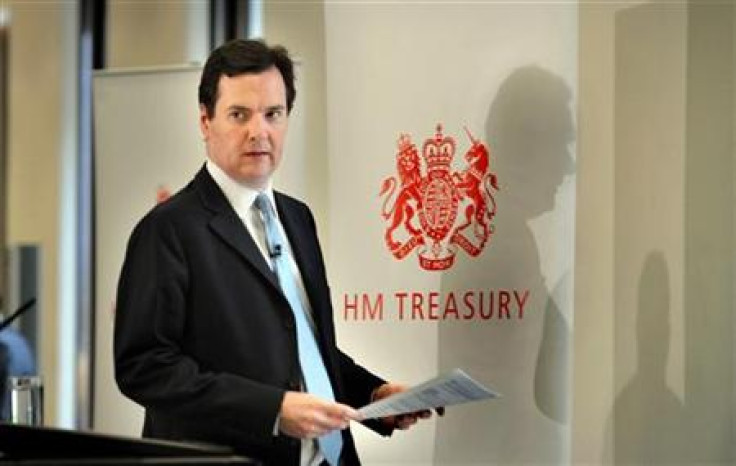What if the people decided what the government spent their tax money on?

With the Comprehensive Spending Review to be announced this month Chancellor George Osborne is set to tell the country what he the government will be spending taxpayer's money on, or perhaps more accurately, what the government will no longer be spending taxpayer's money on.
Mr Osborne has already begun the process this week at the Conservative Party conference, announcing the withdrawal of child benefits to those on over £40,000 a year and putting a cap on how much one family can receive in benefits per year.
During the conference Mr Osborne pointed out that the government spent around a third of its income on welfare, a shockingly high figure, which might lead one to think that Britain was full of poor people in need of the safety net that the welfare state was supposed to be. On other occasions government ministers have pointed out that we now spend more on debt interest than, say, defence.
Such statements only demonstrate the sad fact that the government, whether Conservative, Labour or Coalition, is extremely poor at spending people's money on what they want it spent on.
What would happen if people decided for themselves what their tax money was spent on? What would happen if we had a genuine "People's Budget" where government departments could only spend what the people gave them, as oppose to George Osborne or (bit of speculation here) Ed Balls or Yvette Cooper?
Perhaps all tax-paying individuals could fill out a form in which they tell the Treasury what they would like their taxes to be spent on. Government departments would no longer have to wrangle with the Chancellor but would have to pitch directly to the tax-payer.
Just as charities have their posters telling potential donors what their money can do, government departments could say what good and essential works funding them can do. If of course departments do things which the public are not that keen on their funding would be cut, in accordance with the wishes of the people.
Under such a system would the budget for the NHS and International Development be preserved? Would it be higher or would it be lower? Would Defence and Welfare spending rise?
No more would we have a situation where people complain about their taxes being spent on things they very much disagree with. Richard Dawkins would not have to sit by and watch his taxes pay for the Pope to come and hold Mass in Britain, those who hate sport would no longer have to pay for the policing of football matches they will not watch and do not care about.
On a more positive note citizens could pay their taxes in the knowledge that it will go towards something they care passionately about. George Monbiot at the Guardian could send all of his taxes to combat climate change, perhaps Michael Heseltine could put his taxes towards Britain's £6.4 billion annual contribution to the EU, David Cameron could earmark his money for the Department of International Development, while Gordon Brown could pay towards servicing the debt he helped build up for the country.
For those Libertarian's who think all their taxes will be wasted by the government, or for those who don't much care about what happens to their tax money they could leave the Treasury to decide what to do with their money, and "fill up the gaps" which might have been left by the discriminating public.
Such a system would be bureaucratic, but then isn't it already? But it would certainly make Budget day more interesting and might keep ministers on their toes as well as ensuring that the public do not see their money wasted on things they don't approve of, whether they be foreign wars or equality and diversity officers.
© Copyright IBTimes 2024. All rights reserved.





